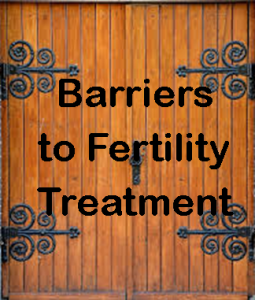 If you, like me, have been through infertility, what were the barriers for you before you went for fertility treatment?
If you, like me, have been through infertility, what were the barriers for you before you went for fertility treatment?
I remember once waiting my entire April holidays before getting up the courage to make a phone call to book an appointment for a fertility clinic. (You can read about that here)
What were my fears?
Off the top of my head, the concerns at the forefront were:
1) Financial (I was very scared about how much this was going to cost. In the end it turned out we did not even have to go through the expense of IVF due to getting cleared out with the laparoscopy and going on the thyroid meds)
2) Bad past experiences with doctors (I needed someone who would listen and care, rather than treat me like an idiot. I really found that with my fertility nurse who did a lot of the communication I needed)
3) Emotional (This whole process is a rollercoaster and I wasn’t keen to get on again. Yes, it was tough, but I found some tools and methods to help me, like Circle Bloom and EFT, and a lot of prayer too).
Often you read these studies that come out and wonder if you could have made a difference, or say your say.
Well now you have the chance! You can participate in a survey that looks at fertility barriers.
I received an email from Hannah Sterling. She is currently working as a Masters student in the Psychology Department at Drexel University in Philadelphia, PA. The Women’s Health Psychology lab is particularly interested in why certain women pursue treatment for problems with fertility, how this process affects them, and how this process may be different for minority women, as they experience infertility at a higher rate, but use treatment much less.
The purpose of this survey is to learn about the social, mental, and emotional experiences of women with fertility problems. It will take about 10 minutes to complete. Your participation is completely anonymous. Women who are between the ages of 18-45, not currently pregnant, and have difficulty conceiving naturally through unprotected intercourse and/or carrying a pregnancy to term are invited to participate in this study.
In appreciation of your participation, two $100 donations have been made to the American Fertility Association and Resolve: The National Infertility Association by the research team to thank you for sharing your experiences and to benefit others who struggle with fertility problems. If you have any questions about this study, you may contact the Principal Investigator, Dr. Pamela Geller, Ph.D., or the research coordinator, Mona Elgohail, at 215-553-7121
Click on this anonymous survey link to participate:
http://tinyurl.com/PhillyFertility
Leave a Reply